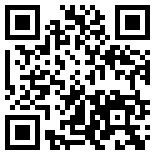你注重飲食
健康么,?還是你現(xiàn)在還是在不停的攝入垃圾
食品,?看看飲食達(dá)人是怎么建議的吧,當(dāng)然這里是健康飲食英語(yǔ)對(duì)話,。
Co
nversation 1
A: The news says there's an outbreak of foot-and-mouth disease on a farm in the southern England.
B: We don't need to worry. Britain has suspended the exports of livestock,,meat and milk products. And they are going to slaughter all the infected animals.
A: Anyway, I seldom have any meat. The “foot-and-mouth”,“mad-cow”and “bird flu”are making me a vegetarian.
B : Me too.
A:新聞上說(shuō),,英國(guó)南部的某個(gè)農(nóng)場(chǎng)暴發(fā)了口蹄疫,。
B:不必?fù)?dān)心。英國(guó)已經(jīng)暫停了牲畜,、肉類和奶制品的出口,。并準(zhǔn)備屠宰所有已經(jīng)感染的動(dòng)物,。
A:反正我也很少吃肉?!翱谔阋摺?、“瘋牛病”和“禽流感”已經(jīng)快讓我變成素食主義者了。
B:我也是,。
Co
nversation 2
A: I just bought a can of meat, without production and expiring date on the
PACkage. I just want to throw it into the trashcan.
B: Don't throw it away. We can eat it as long as the can doesn't swell up.
A: We'd better not. It must be produced by some illegal producer. I'm afraid of food-poisoning.
B: That's all right.
A: 我剛買了個(gè)肉罐頭,,包裝上面沒(méi)有生產(chǎn)日期和保質(zhì)期。我正要扔到垃圾箱里呢,。
B:別扔,。只要沒(méi)有漲罐現(xiàn)象就能吃。
A:比較好還是不要吃,。這一定是非正規(guī)廠家生產(chǎn)的,。我怕食物中毒。
B:那好吧,。
Co
nversation 3
A: Do you think your eating habit healthy?
B: Yes, my eating habit is pretty good. How a
bout you`? Do you have a healthy diet?
A: No, I don't. I don't like vegetables, and I eat a lot of junk food.
B: That is too bad. It is im
portant to eat a balanced diet.
A: Yes. I teach children a
bout healthy food, but I don't eat healthy food.
B: You can change that.
A:你認(rèn)為你的飲食習(xí)慣健康嗎?
B:當(dāng)然,。我的飲食習(xí)慣相當(dāng)好。你呢?你注重飲食健康嗎?
A:不,,我不喜歡吃蔬菜,,而且我總吃一些垃圾食品。
B:那可不好,。平衡飲食很重要,。
A:是啊,我告訴孩子們要吃健康食品,,但我自己卻不愛(ài)吃,。
B:你得改改了。
Co
nversation 4
A: What do you think a
bout all the different diets people go on?
B: I don't think dieting is good for you. It's much better to cat a balanced diet and to never getoverweight to begin with !
A: But what do you think a
bout people who are obese? What should they do to lose weight?
B: They need to cat healthy foods, but they also have to increase the amount of exercise theydo every day. They don't have to cut out fattening foods altogether, though.
A: So you think it's OK for people who are dieting to eat chocolate?
B: Sure, they can eat some chocolate. As long as they are exercising and eating mostlyhealthy foods, there's nothing wrong with havin
g a small desert.
A: How a
bout drinking soda?
B: Many people gain weight by drinking far too much soda. Soda should be a treat, there'ssimply no nutritio
nal value in it whatsoever. If you want to lose weight and you can't stopdrinking soda, try some diet coke.
A: That's good advice. Have you ever tried taking vitamins?
B: My mother used to make me take vitamins every day, but I don't take them anymore.
Vitamins are good as a supplement, but they don't do much good if you don't have awell-balanced diet to start.
A : How do you know so much a
bout food and dieting?
B: You might not believe this, but i used to be twice the size that I am now!
A:對(duì)于人們進(jìn)行各種各樣的節(jié)食你怎么看?
B:我覺(jué)得節(jié)食對(duì)你不好,。飲食比較好要均衡,,而且從小就得注意不要肥胖。
A:但是那些已經(jīng)肥胖的人該怎么辦呢?他們應(yīng)該怎么減肥?
B:他們需要吃健康食品,,不過(guò)還得同時(shí)增加每天的運(yùn)動(dòng)量,。而且。不能一下子就把所有會(huì)長(zhǎng)胖的食物都停掉不吃,。
A:那么你覺(jué)得正在節(jié)食的人吃些巧克力也是可以的嗎?
B:當(dāng)然,,他們可以吃些巧克力。只要他們堅(jiān)持鍛煉,,而且攝入的主要都是健康食品,,那么吃點(diǎn)兒甜食也沒(méi)什么問(wèn)題。
A:那喝汽水呢?
B:很多人體重增加都是因?yàn)楹攘颂嗟钠?。汽水的?wèn)題應(yīng)該認(rèn)真對(duì)待,,無(wú)論如何,,那里面一點(diǎn)兒營(yíng)養(yǎng)價(jià)值都沒(méi)有。如果你既想減肥又不想戒掉汽水,,那么我建議你試試喝健怡可樂(lè),。
A:這是個(gè)好主意。你有沒(méi)有試過(guò)吃維生素片?
B:我媽媽以前曾經(jīng)讓我每天都吃點(diǎn)維生素片,,但是我現(xiàn)在不吃了,。維生素作為一種營(yíng)養(yǎng)補(bǔ)充劑確實(shí)很好,但是如果你的飲食攝人不均衡,,那么它也不會(huì)有太大作用,。
A:你怎么知道這么多關(guān)于飲食和減肥的知識(shí)?
B:你也許不相信,我以前比現(xiàn)在胖一倍!
熱點(diǎn)健康飲食的英語(yǔ)對(duì)話是勤學(xué)思教育網(wǎng)的主要產(chǎn)品,我們的產(chǎn)品負(fù)責(zé)人是張生,有需要的朋友請(qǐng)直接撥打我的電話13988888888,我們的地址是勤學(xué)思教育網(wǎng),期待與您的合作!

 [VIP第1年] 指數(shù):2
[VIP第1年] 指數(shù):2


